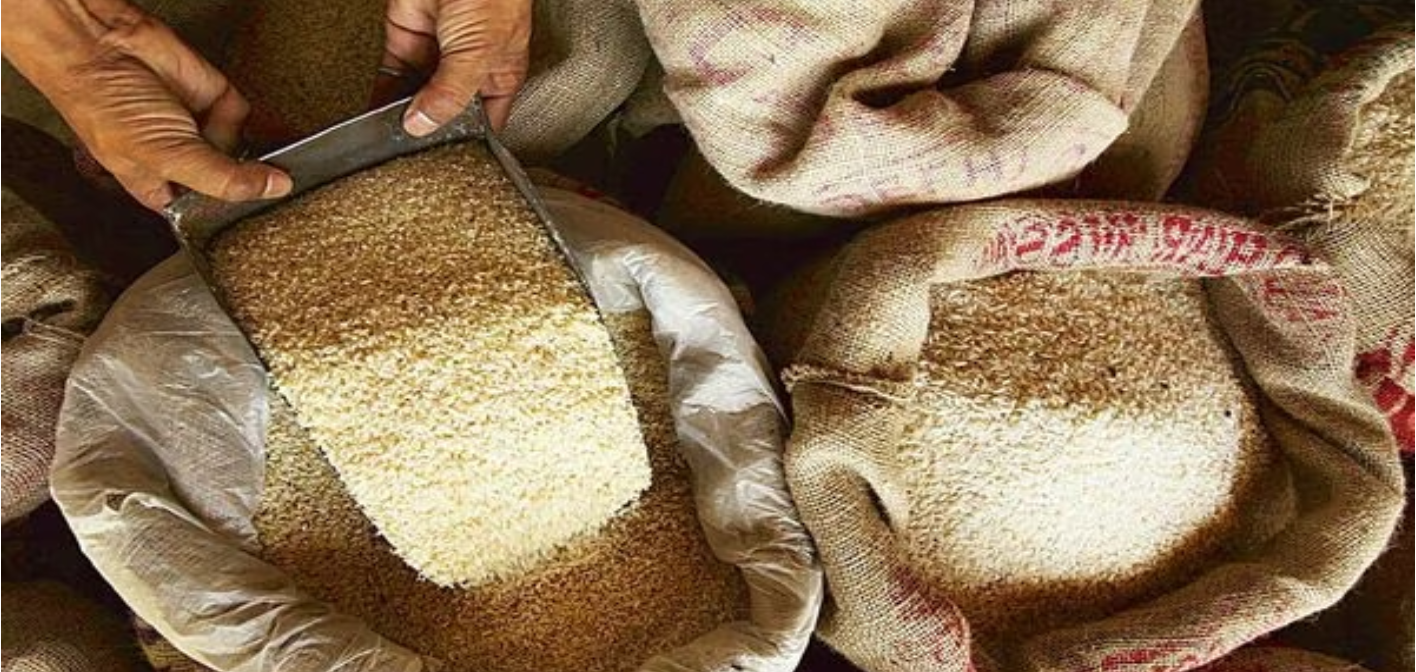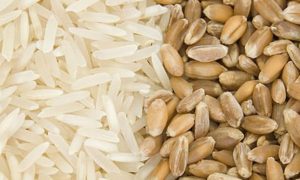Parboiled rice may attract export levy

NEW DELHI : India may extend duty restrictions to exports of non-basmati parboiled rice and impose a minimum export price (MEP) for the basmati variety depending on the situation, following the ban on white rice exports in response to escalating prices of the staple.
The government is exploring to impose a 20% duty on non-basmati parboiled rice exports, while an MEP of around $1,250 per tonne could be levied on basmati rice, two officials aware of the plan said on condition of anonymity. However, the decision will depend on several factors, including domestic rice prices, they added.

MEP, first implemented on basmati rice in FY11 to deter exports, is typically implemented to contain surging domestic prices because of production disruptions.
The move being explored aims to stop aggressive exports by falsely labelling shipments as those of basmati rice. “The ban on non-basmati white rice exports led people to ship non-basmati white rice containers under basmati HS (harmonised system) code, which is causing aggressive exports and consequently pushing up prices domestically, one of the government officials said. “Exports of basmati rice have been noticed to be more than the production. How can that be possible? Therefore, the government is considering imposing MEP of around $1,250 per tonne.”
In the first three months of the current fiscal, India, which accounts for about 80% of basmati rice trade globally, exported the premium variety to 75 countries. In nine of these countries, the price was less than $1,000 per tonne, constituting 4% of the total export quantity, the official said.
Basmati rice exports in the June quarter were about 1.17 million tonnes (mt), against the previous year’s 1.13 mt. The latest data could not be accessed as the Directorate General of Commercial Intelligence and Statistics is still compiling it.
In the case of parboiled rice, firm prices have been a concern despite the government restricting exports of non-basmati white rice on 20 July. Prices of parboiled rice have risen 19% since April in the domestic market and 26% in the international market, while the export quantity and value of the rice variety shot up 21% and more than 35%, respectively.
Currently, all-India average retail parboiled rice is available at ₹37-38 a kg and ₹92-93 for basmati rice. Free-on-board (FoB) parboiled rice price is around $500 a tonne and $1,000 a tonne for basmati varieties, traders said. India has a share of around 25-30% of the global parboiled rice trade.
According to economists, retail inflation in rice was 13% in July, compared to 12% in June and 4.3% in July 2022.
While demand for basmati from the Gulf Cooperation Council countries and European nations has gone up by 5-7% post-India’s 20 July ban, vulnerable nations in West Africa are shifting to Indian parboiled rice to meet their domestic consumption amid an uptrend in international prices of rice offered by other nations.
As a result, India exported about 3.1 mt of parboiled rice so far in the current fiscal as against 2.58 mt during the corresponding period last fiscal, according to government data. The aggressive export of parboiled rice has sparked concerns as rice prices remain firm despite July’s intervention, and because of this, the government is considering a duty restriction on parboiled rice exports, the second government official said. “The duty could be 20%. However, a definite figure is difficult to say as the final call will be taken by top authorities.”
Meanwhile, Union food secretary Sanjeev Chopra told news agencies that there is “no proposal, as of now, to restrict exports of parboiled non-basmati rice.”
Chopra did not respond to calls and texts seeking comments. Queries sent to the secretaries and spokespeople for ministries of food and public distribution, consumer affairs, commerce and finance, and the Directorate General of Foreign Trade remained unanswered till press time.
Rice exporting companies say they have been receiving more queries after the export ban on non-basmati white rice. “Usually, we get 2-3 queries each day for basmati around this time of the year, but since the imposition of export duty on non-basmati white rice, we have been receiving 4-5 queries,” said one of the leading rice exporters on condition of anonymity.
The government, on 20 July, amended the export policy of non-basmati white rice from ‘free with the export duty of 20%’ to ‘prohibited’ to ensure adequate availability of the above variety in the Indian market and to allay the rise in prices in the domestic market. It had taken a similar decision for broken rice exports last September.















